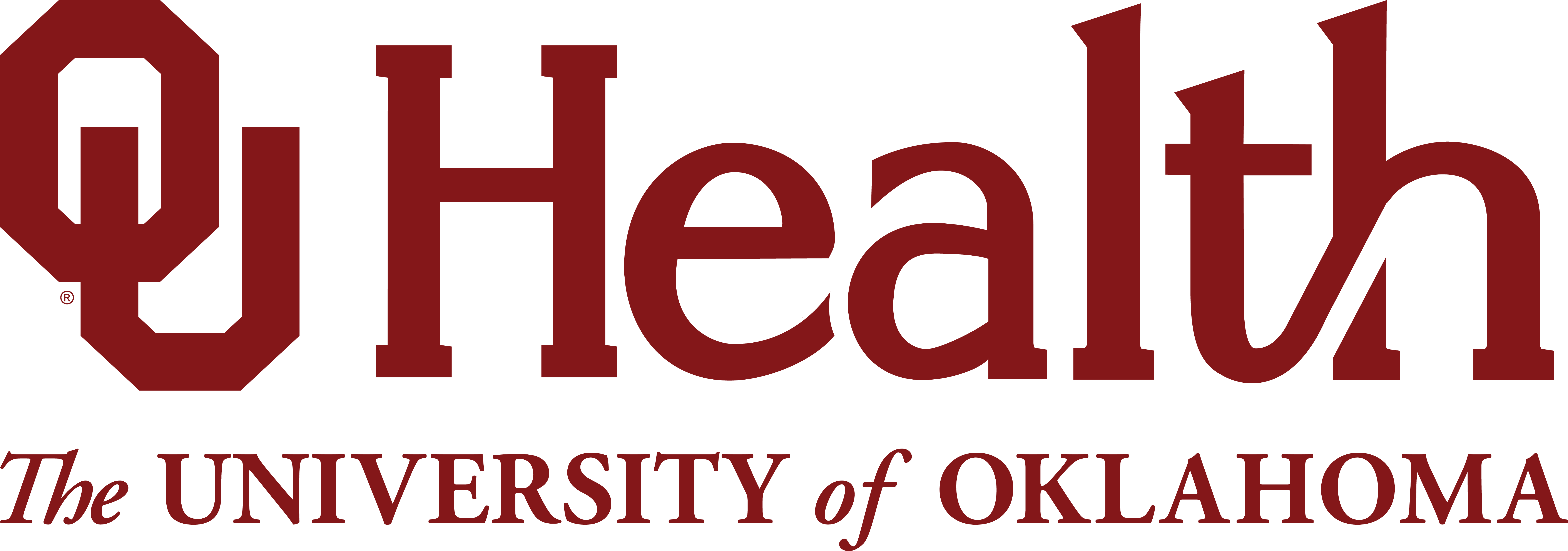A New Cardiac Diagnostic Tool at OU Health Transformed Mary Ellen's Heart Health
- Posted On:

Mary Ellen Drago-Dunaway’s journey to diagnosing and understanding her heart condition was marked by years of frustration, fear, and dismissal by healthcare providers.
The Howe, Oklahoma, resident knew something was wrong, even though all her heart tests came out clean. She worried that whatever was affecting her heart—the condition that doctors kept telling her didn't exist—would eventually lead to a fatal outcome.
Her worries changed when she turned to OU Health, where an innovative diagnostic tool called the CoroFlow finally provided the answers she had been seeking for over a decade.
“I’m Not Crazy!”
Living on the border of Oklahoma and Arkansas near Fort Smith, Mary Ellen had consulted numerous specialists about her persistent symptoms. Despite her clear symptoms, multiple cardiac tests failed to identify the problem, leading some healthcare providers to suggest her issues were psychological rather than physical.
The experience left her feeling invalidated and frightened.
"I couldn't breathe, and my heart just felt like somebody was just squeezing it or stepping on it," she said.
"I told my husband, 'They're going to kill me.’ One nurse even told me, "You've made it for five years. I don't know what your problem is,’ before walking out of the examination room.”
Desperate for answers and fearing for her life, Mary Ellen made her way to OU Health's emergency room. There, she found healthcare providers who were willing to listen.
"The doctor who was down there in emergency pulled the little garbage can with hazmat sticker on it and sat on it. He said, 'You know what? I'm going to get you to a doctor that's going to fix you.”
That doctor referred her to the OU Health, led by a pioneering female interventional cardiologist Dr. Razan Elsayed, M.D., who connected her with dual trained advanced heart failure transplant and interventional cardiologist Dr. Mohit Pahuja, M.D., assistant professor in the Section of Cardiology at the University of Oklahoma College of Medicine, and the first cardiologist in the state to use the new diagnostic tool CoroFlow.
This new diagnostic tool helps doctors see heart problems that might be missed by traditional heart tests by examining the smallest blood vessels in the heart—even ones thinner than human hair. While standard heart tests look at the larger arteries, CoroFlow can examine the tiny vessels that feed blood to the heart muscle, using specialized tests based on pressure and blood flow data collected through a coronary pressure wire.
"Many of these patients are ignored," said Dr. Pahuja. "It's not uncommon for people to think it's because of anxiety or stress. They're ignored by multiple physicians, thinking that since they didn't see anything earlier, they may not have anything going on."
Mary Ellen was Dr. Pahuja's first confirmed case of CoroFlow-diagnosed microvascular disease at OU Health, which is currently the only hospital in Oklahoma with this groundbreaking technology. During the procedure, he made a discovery that validated years of her concerns.
"He came over and said, 'I found a problem. You're not crazy,'" Mary Ellen said.
The CoroFlow examination revealed that Mary Ellen had Coronary Microvascular Disease, or small vessel disease. The microvessels of her heart had an underlying disease in the cells lining of these vessels,, restricting blood flow in ways that standard tests had failed to detect.
"I explained to my grandbabies that I'm like the Grinch – the bottom part of my heart is two sizes too small," Mary Ellen said with a smile. "It didn't grow because the vessels are too small, and the blood can't go through it."
New Hope for the Future
The diagnosis has been life changing. With appropriate medication and treatment specifically targeted for her condition, Mary Ellen has experienced significant improvement in her symptoms.
"I haven't had the chest pains that I was having," she said. More importantly, the weight of uncertainty has been lifted from her shoulders. "I've actually been able to do stuff. I want to clean, I want to keep the house up, I want to do things with the grandbabies.”
Dr. Pahuja emphasizes the broader implications of this technology.
"There are many patients out there who present with heart attacks or come to the clinic with chest pains, and there have been no traditional blockages in the major heart vessel,” he said. “This groundbreaking equipment helps us identify that although the major vessels are not blocked, there can be disease in the small vessels of the heart that are not visualized by traditional angiogram."
Mary Ellen hopes her story will help other women who find themselves in similar situations.
"I think it will make them feel a whole lot better and that they know that when something's wrong with your body, you know," she said. "You don't feel bad just for no reason. You're not crazy."
Her husband has already bought her a kayak, supporting her doctor's recommendation to begin incorporating more physical activity into her life. It is a far cry from where she was just months ago, when fear and uncertainty kept her largely homebound.
For patients like Mary Ellen, who have spent years searching for answers, the combination of leading-edge diagnostic tools and compassionate healthcare providers can make all the difference.
"I felt like a weight was lifted off my shoulders just knowing something was actually wrong with my heart, and that I wasn’t crazy," Mary Ellen said.
Learn more about advanced cardiac and cardiovascular care at OU Health Interventional and Structural Cardiology, or call (405) 271-4460 to speak with a specialist.



